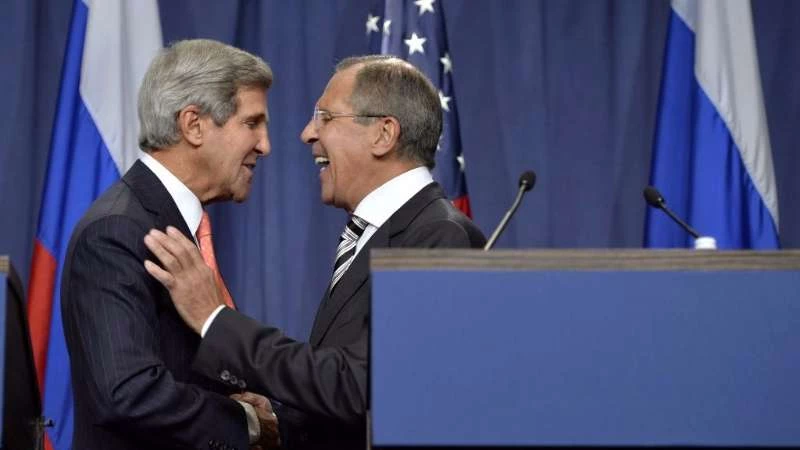Whether it prevails or becomes bogged down in a quagmire in Syria, Russia at the orders of President Vladimir Putin has decided not to back down whatever the cost of the battle will be, including the cost in Syrian lives.
To Moscow, Arab Spring was a threat to its national and strategic interest. Its alliance with Tehran, meanwhile, goes beyond their mutual agreement on shoring up Assad. To be sure, Moscow considers Islamic terrorism as purely Sunni terrorism, and finds the Shiite ally indispensable in its war with this "Sunni terrorism".
Russia’s adventure in the Syrian conflict also proceeds from its conclusion that the US has given it implicit consent, is a silent partner, and that when needed Washington is prepared to wave its stick and overturn equations.
This is exactly what happened during the first week of the first round of negotiations between the regime and opposition delegations in Geneva, part of the Russian-owned and internationally implemented Vienna process.
Efforts to launch negotiations were coupled by Russia with an intensification of airstrikes on the armed Syrian opposition. Moscow refused to stop its strikes, and Russian Foreign Minister Sergei Lavrov even said Russia will not stop bombing Syria until “terrorists” there are defeated--whether in partnership with Iran, the US, or the devil himself.
Moscow is intent, Tehran is ready, and Washington is supportive. The Obama administration is still in awe of the Islamic Republic of Iran, and is willing to turn a blind eye to Iranian actions in Syria without accountability in appeasement of Moscow, while its eyes will be trained on Iranian elections and the expected fierce battle between moderate and hardline mullahs, who are backed by Revolutionary Guards that is overseeing the Iranian war in Syria.
But first, the first round of the Geneva talks need a pause. The decision by the Syrian opposition’s Higher Negotiation Committee (HNC) to go to Geneva was the right one, regardless whether this took place under regional and US pressure. Its presence in Geneva allowed the HNC to highlight the Russian military escalation in Syria in parallel with diplomatic escalation, through the intransigence of the regime delegation and the pro-regime opposition figures. As a result, the negotiations were a farce rather than a serious attempt to put Syria on the road to recovery.
Raghida Dergham in HuffPost



التعليقات (0)